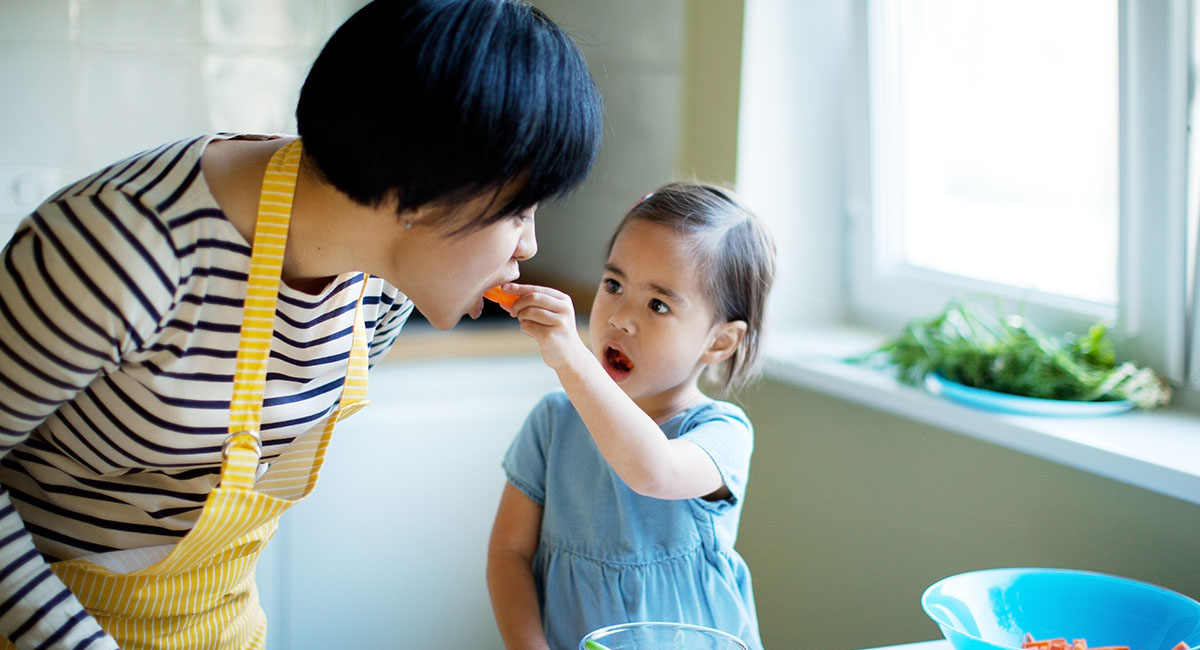As a newly minted grandmother, I’ve got a front seat row to the food fights that happen between parent and toddler. They run the gamut from “just one little bite for mommy, please?” to “if you eat one more carrot, you’re going to turn orange!” The one thing I’ve learned in my years of parenting is that the surest way to raise a kid with food issues is to make food an issue at the table. Here are five things I wish I had known when I was trying to get my toddlers to eat what I thought they should be eating.
You Don’t Have to Balance Every Meal
Sure, it’s important for kids to eat a well-rounded, balanced diet, but it won’t kill them if they don’t eat every food group at every meal – or even every day. Your goal should be to balance their diet over the course of a few days. If your little darling won’t eat his veggies at dinner, tuck an extra serving into a meal later in the week.
Keep Portion Sizes Reasonable
Little kids have little tummies, and they fill up fast. If you pile more food on their plate than they can handle, one of two things will happen: they won’t eat it all and you’ll get stressed – or they will eat it all, which conditions them to overeat. So what’s reasonable? According to HealthyChildren.org, these are appropriate serving sizes for the typical toddler:
- 1 ounce of meat or 2-3 tablespoons of beans
- 1-2 tablespoons of fruit or vegetable
- 1/4 slice of bread
- Let Them Graze
Little ones aren’t always hungry when you think they should be – and often are hungry when you least expect it. Keep a variety of healthy snacks on hand and easily accessible so they can grab a bite between playing. Chunks of cut-up fruit, bite-size cubes of cheese or a little bowl of thawed frozen peas are just a few ideas.
De-stress Meal Times
Make meal times social, fun times. The less stress there is at the breakfast or dinner table, the less likely it is that your child will associate food with stress. On a related note, don’t let mealtime conversations revolve around getting your toddler to eat her food. It’s a guaranteed strategy to turn eating into a power struggle, and that’s a recipe for eating disorders in later life.
Respect Your Toddler’s Tastes
It would be nice to raise kids who’ll try anything and enjoy a wide variety of foods, but some kids just have sensitive taste buds. If your child clearly expresses dislike for certain foods or flavors, give him the respect of accepting that he knows what he doesn’t like. Trying to make him eat something he doesn’t like just turns eating into a power struggle.
Finally, just remember: the less you stress about what your toddler is eating, the better you’ll all feel about food.

